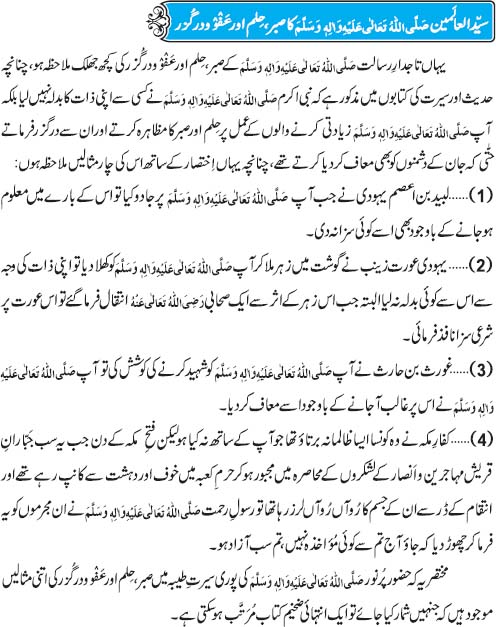
Kafir Aur Momin Ki Dunyavi Misal Aur Unn Ka Ukhravi Haal
Significance Of Morning Prayer
[65. Surah At-Talaq: Ayah 2-3] And whosoever keepeth his duty to Allah, Allah will appoint a way out for him. And He provides for him from (sources) he never could imagine. And if anyone puts his trust in Allah, Allah will be sufficient for him.
[Sahih Bukhari: Volume 2, Book 21 Prayer at Night (Tahajjud), Number 243] Narrated by Abu Huraira (Radi Allah Anhu) Allah’s Apostle (sal-allahu-alleihi-wasallam) said, “Satan puts three knots at the back of the head of any of you if he is asleep. On every knot he reads and exhales the following words, ‘The night is long, so stay asleep.’ When one wakes up and remembers Allah, one knot is undone; and when one performs ablution, the second knot is undone, and when one prays the third knot is undone and one gets up energetic with a good heart in the morning; otherwise one gets up lazy and with a mischievous heart.”
[Sahih Bukhari: Volume 2, Book 21 Prayer at Night (Tahajjud), Number 245] Narrated ‘Abdullah (Radi Allah Anhu): A person was mentioned before the Allah’s Apostle (sal-allahu-alleihi-wasallam) and he was told that he had kept on sleeping till morning and had not got up for the prayer. The Prophet said, “Satan urinated in his ears.”
[Sahih Bukhari: Volume 2, Book 21 Prayer at Night (Tahajjud), Number 246] Narrated Abu Huraira (Radi Allah Anhu): Allah’s Apostle (sal-allahu-alleihi-wasallam) said, “Our Lord, the Blessed, the Superior, comes every night down on the nearest Heaven to us when the last third of the night remains, saying: “Is there anyone to invoke Me, so that I may respond to invocation? Is there anyone to ask Me so I may grant him his request? Is anyone seeking My forgiveness, so that I may forgive him?”
Our Lord! accept from us; surely Thou art the Hearing, the Knowing.
Janwaro Kay Haqooq

Janwaro Kay Haqooq
My Lord Build For Me A Home With You In Paradise
It was narrated that Ibn Abbaas (RA) said Prophet of Allah [Peace and Blessings of Allah be upon him]
drew four lines on the ground, then said: “Do you know what this is”? We said, “Allah and His Messenger know best.” Prophet [peace and blessings of Allah be upon him] said: “The Best of the women of Paradise are
1: Khadeejah bint Khuwaylid
2: Faatimah bint Muhammad
3: Aasiyah bint Mazaahim [the wife of Pharaoh]
4: Maryam bint Imraan ~ [may Allah be pleased with them all.]
Source: Ahmad # 2663. Classed as Saheeh by al-Albaani.}in Saheeh al-Jaami # 1135.
It was narrated from Anas (RA) that the Prophet (peace be upon him) said: “Sufficient for you among the women of the world are
Maryam the daughter of Imran.
Khadeejah bint Khuwaylid.
Faatimah bint Muhammad.
Aasiyah the wife of Pharaoh.”
(Source: Narrated and classed as Saheeh by al-Tirmidhi H # 3878)
Aasiyah bint Mazaahim (R.A)[The Wife of Pharaoh] The Qur`an has presented Aasiyah bint Mazaahim (R.A.) as one of the best role models for women. Aasiyah (r.a.) greatness is in the fact that although she was the wife of one of the most powerful, arrogant, and tyrant rulers of Egypt, she was able to see and accept the truth in the message of Prophet Musa [Alaihis Salam].
For her, wealth, beauty, or status was not the main criterion of human excellence; she realized that without faith in God, a human being has nothing. [ALLAH had chosen her to provide refuge to Musa [Alaihis Salam] when he was an infant.] When her maids brought the cradle of Musa [A.S.] from the river, she insisted to Pharaoh that she wanted to adopt that infant as a child. The wife of Pharaoh said. ‘Here is the joy of the eye, for me and for thee: slay him not. It may be that he will be use to us, or we may adopt him as a son.’And they perceived not what they were doing. {Source Qur’an Surat Al-Qasas (The Stories) 28 A #9 }
Aasiyah bint Mazaahim (r.a.) had declared her faith in the message of God after witnessing the miracle of Musa [Alaihis Salam] in the Court of the Pharaoh; and after witnessing the death of another believing woman under torture. Pharaoh tried to turn her away from the God of Moses and sought her mother’s help. But Aasiyah (r.a.) refused to reject the God of Moses. Pharoah said ‘Believe ye in Him before I give you permission? Surely this must be your leader who has taught you magic Be sure I will cut off your hands and feet on opposite sides, and I will have you crucified on trunks of palm trees: so shall ye know for certain, which of us can give the more severe and the more lasting punishment’.
{ Source: Qur’an Surat Ţaha (Ta-Ha) 20 A # 71 }
On Pharaoh’s order, she was tortured to death. The Qur’an sets her as an example for believers to stay away from evil and sin despite the full assault of the devil: Allah sets forth an example for those who believe- the wife of Pharaoh who said ‘ My Lord, build for me with You a house in Heaven and save me from the Pharaoh and his doings, and save me from an unjust people.’
[Source Qur’an Surat At-Tahrim (The Prohibition) 66 A # 11]
A Lil Note: In this Lady, we see the example of supreme sacrifice by marrying Pharaoh, Aasiyah bint Muzahim became the Queen of Egypt, she gained everything that she wanted in this worldly life from the materialistic point of view: the best of clothes, food, palaces, jewels, servants and maids, etc. But she sacrificed all that to be closer to Allah {Azza Wa Jall} And that is why we see her included by the Prophet [Peace be upon him] in the list of the four women who attained the level of perfection.
Islam Mein Samaji Taluqat Ki Ahmiyat

Islam Mein Samaji Taluqat Ki Ahmiyat
Hadiths On Remembrance Of Allah
Which status would be higher than having your humble person appreciated and mentioned by Allah Almighty to a gathering of high-esteemed Angels?
That is only one of the many valuable advantages you gain through frequent remembrance of Allah ( dhikr Allah ). The special position of this easy act of worship is frequently emphasized by the Prophet (peace and blessings be upon him) who “used to remember Allah all the time” (Abu Dawud)
Reviewing rewards promised for those who remember Allah should fill us with pity for all the hours we waste without seizing these amazingly easy opportunities. The following collection reveals the significance of this beautiful type of worship and the great reward you can reap through it.
Best Deed
1. Abu Ad-Darda’ (May Allah be pleased with him) narrated that the Prophet said: “Shall I not inform you of the best of your actions, the purest in the sight of your Lord, which raises your rank to the highest, which is better for you than spending gold and silver, better than meeting your enemy so that you strike at their necks and they strike at yours?’ They replied: ‘Yes, indeed,’ and he said: ‘It is the remembrance of Allah.” (At-Tirmidhi)
A Special Status
2. Abu Hurayrah (May Allah be pleased with him) narrated that the Prophet said: “Allah says, “I treat My servant as he hopes that I would treat him. I am with him whenever he remembers Me:
if he thinks of Me, I think of him;
if he mentions Me in the company, I mention him in an even better company.
if he draws near to Me a hand’s span, I draw near to him an arm’s length;
if he draws near to Me an arm’s length, I draw closer by a distance of two outstretched arms nearer to him; and if he comes to Me walking, I go to him running.” (Al-Bukhari and Muslim)
Follow the Shari’ah Zone
3. Abu Musa Al-Ash’ari (May Allah be pleased with him) narrated that the Prophet said: “The similitude of someone who remembers his Lord and someone who does not is like that of the living and the dead. ” (Al-Bukhari)
4. Abdullah ibn Busr (may Allah be pleased with him) narrated that One of the Prophet’s Companions said, “O Messenger of Allah. I am overwhelmed by the so many injunctions of Islam. So tell me something to which I may hold fast.” The Prophet replied, ” Keep your tongue wet with the remembrance of Allah. ” (At Tirmidhi)
Abundant Forgiveness
5. Abu Hurairah (may Allah be pleased with him) also reported that the Prophet (peace and blessings be upon him) said: He who says, ‘ Subhan-Allahi wa bihamdih ‘ (Glory and praise be to Allah) one hundred times a day, his sins will be obliterated even if they are equal to the extent of the foam of the sea. (Al-Bukhari and Muslim)
6. Zaid ibn Harithah narrated that the Prophet (peace and blessings be upon him) said: Whosoever says: ‘ Astaghfirullaha al-`Azeem al-ladhi la ilaha illa howa Al-Hayy al-Qayyum wa atubu illayh (I ask forgiveness of Allah, the Magnificent, than Whom there is no deity, the Living, the Sustainer of existence, and I turn to Him in repentance,)
his sins will be forgiven even if he should have run away from the battlefield (while he was engaged in fighting for the Cause of Allah, which is a grave sin in Islam). (Abu Dawud and authenticated by Al-Albani)
Huge Reward
7. Anas ibn Malik narrated that the Prophet said: ” Whoever prays Fajr Prayer in the congregation, and then sits and remembers Allah until the sun rises, then (after a while) prays two rak’has , he will gain a reward equal to that of making perfect Hajj and `Umrah. [The Prophet repeated the word “perfect” thrice.] (At-Tirmidhi)
8. Abu Hurayrah reported that the Prophet said: He who repeats after every prayer:
Subhan Allah ( Glory be to Allah ) thirty-three times,
Al-hamdu lillah (praise be to Allah) thirty-three times,
Allahu Akbar (Allah is Greatest) thirty-three times;
and completes the hundred with:
La ilaha illallahu, wahdahu la sharika lahu, lahul-mulku wa lahul-hamdu, wa Huwa `ala kulli shai’in qadir
(There is no true god except Allah. He is One and He has no partner. His is the sovereignty and His is the praise, and He is Omnipotent) will have all his sins pardoned even if they may be as large as the foam on the surface of the sea. (Muslim)
9. Abu Ayyub Al-Ansari (may Allah be pleased with him) reported that the Prophet (peace and blessings be upon him) said: He who utters ten times: La ilaha illallahu, wahdahu la sharika lahu, lahulmulku wa lahulhamdu, wa Huwa ala kulli sha’in qadir
(There is no true god except Allah. He is One and He has no partner. His is the sovereignty and His is the praise, and He is Omnipotent), he will have a reward equal to that for freeing four slaves from the progeny of Prophet Isma`il. (Al-Bukhari and Muslim)
10. Abu Hurayrah (May Allah be pleased with him) narrated that the Prophet said: ” There are two statements that are light on the tongue, heavy on the scales, and beloved to the Most Merciful: Subahana Allahi wa bihamdih
Subhana Allahi Al-`Azeem (Glory and praise be to Allah, Glorified is Allah, the Most Great.) ” (Al-Bukhari)
By Muhammad Fathi
Syed ul Alameen (PBUH) Ka Sabar, Hilm Aur Afw-o-Darguzar

Syed ul Alameen (PBUH) Ka Sabar, Hilm Aur Afw-o-Darguzar
Five Types Of Martyrs
[Sahih Bukhari : Volume 1, Book 11, Number 624] Narrated Abu Huraira (Radi Allah Anhu): Allah’s Apostle (sal-allahu-alleihi-wasallam) said:
“While a man was going on a way, he saw a thorny branch and removed it from the way and Allah became pleased by his action and forgave him for that.”
Then the Prophet (sal-allahu-alleihi-wasallam) said, “Five are martyrs:
1. One who dies of plague,
2. One who dies of an abdominal disease,
3. One who dies of drowning,
4. One who is buried alive (and) dies
5. And One who is killed in Allah’s cause.”
The Prophet (sal-allahu-alleihi-wasallam) further said, “If the people knew the reward for pronouncing the Adhan and for standing in the first row (in the congregational prayer) and found no other way to get it except by drawing lots they would do so.
And if they knew the reward of offering the Zuhr prayer early (in its stated time), they would race for it.
And they knew the reward for ‘Isha’ and Fajr prayers in congregation, they would attend them even if they were to crawl’.”
Quran Samajhne Ke Liye Sunnat Ki Zarorat

Quran Samajhne Ke Liye Sunnat Ki Zarorat
What Is Faith? What Is Islam? When Will The Hour Be Established?
What is Faith?
What is Islam?
When will the Hour be established?
[Sahih Al-Bukhari: Volume 1, Book 2, Number 47] Narrated Abu Huraira (Radi Allah Anhu): One day while the Prophet (sal-allahu-alleihi-wasallam) was sitting in the company of some people, (The angel) Gabriel came and asked:
“What is faith?” Allah’s Apostle (sal-allahu-alleihi-wasallam) replied, ‘Faith is to believe in Allah, His angels, (the) meeting with Him, His Apostles, and to believe in Resurrection.”
Then he further asked, “What is Islam?” Allah’s Apostle (sal-allahu-alleihi-wasallam) replied, “To worship Allah Alone and none else, to offer prayers perfectly to pay the compulsory charity (Zakat), and to observe fasts during the month of Ramadan.”
Then he further asked, “What is Ihsan (perfection)?” Allah’s Apostle (sal-allahu-alleihi-wasallam) replied, “To worship Allah as if you see Him, and if you cannot achieve this state of devotion then you must consider that He is looking at you.”
Then he further asked, “When will the Hour be established?” Allah’s Apostle (sal-allahu-alleihi-wasallam) replied, “The answerer has no better knowledge than the questioner. But I will inform you about its portents when a slave (lady) gives birth to her master. When the shepherds of black camels start boasting and competing with others in the construction of higher buildings. And the Hour is one of five things which nobody knows except Allah. The Prophet then recited: “Verily, with Allah (Alone), is the knowledge of the Hour–.” (31. 34)
Then that man (Gabriel) left and the Prophet (sal-allahu-alleihi-wasallam) asked his companions to call him back, but they could not see him. Then the Prophet (sal-allahu-alleihi-wasallam) said, “That was Gabriel who came to teach the people their religion.” Abu ‘Abdullah said: He (the Prophet) considered all that as a part of faith.
Our Lord! grant us good in this world and good in the hereafter, and save us from the chastisement of the fire.

